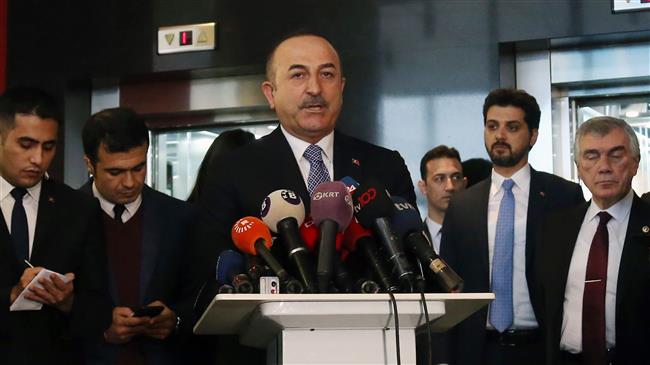The Turkish government is sending to parliament a bill mandating troop deployment to Libya despite the oppositionís rejection, three days after Ankara announced the Libyan Government of National Accord (GNA) had officially requested military support from Turkey.

Turkeyís Foreign Minister Mevlut Cavusoglu announced the news during a press conference on Monday, following a closed-door meeting with opposition leaders to rally support for the legislation.
Unal Cevikoz, deputy chairman of the Republican Peopleís Party (CHP), said the group opposed such a motion, which will be discussed in the Grand National Assembly of Turkey as soon as it opens in January after recess.
"We believe diplomacy should be prioritized, rather than being a party to a proxy war. What is being done is making preparations to worsen the current situation, and we conveyed to the minister that this is not right," Cevikoz said.
"Sending troops there in this case will expand the effects of the conflicts in the region and cause them to spread... We view the bill negatively."
Since 2014, Libya has been divided between two rival camps: one based in the eastern city of Tobruk, and the other, the internationally-recognized government of Prime Minister Fayez al-Sarraj, known as the GNA, in the capital Tripoli.
A renegade general, Khalifa Haftar, is the self-proclaimed commander of an array of militia groups, collectively known as the so-called Libyan National Army (LNA), and is apparently supporting the eastern government.
In April, Haftarís forces launched an offensive to capture Tripoli. Despite intense and deadly clashes between the two sides, Haftar has so far failed to achieve his objective and his offensive stalled outside the capital.
On Saturday, Haftarís forces seized a Turkish ship, a few weeks after Faraj al-Mahdawi, the chief of staff of the LNA navy, had said he had "orders" from Haftar "to sink any Turkish research vessel" that would approach the shores of Libya.
Last month, Ankara and the Tripoli government signed an expanded security and military cooperation accord, which irked the eastern government in Libya and drawn international ire.
The maritime deal has also angered neighboring Greece, which slammed it as an "infringement on its sovereignty" that could complicate Athensí decades-old disputes with Ankara over Cyprus and maritime rights in the Aegean Sea. Greece has already expelled the Libyan ambassador to Athens over the deal.
Speaker of Libyaís eastern parliament Aguila Saleh also expressed his opposition to the maritime deal on Saturday, saying that it was a "flagrant violation of international law" because the legislature in Libyaís second city of Benghazi must approve the agreement.
Following his meeting with CHP leader Kemal Kilicdaroglu on Monday, Cavusoglu said that "of course, the decision on the motion is up to CHP."
"We have told them why we need a resolution, including the threats we face, in terms of our country and the national interests of our country," the top Turkish diplomat further told reporters after the meeting.
Cavusoglu added that he would not be visiting the Nationalist Movement Party (MHP), another major party in the parliament, as it had already expressed its support for the bill in a statement on Saturday.
The Turkish parliament has already approved the bilateral security accord and the Libyan government has ratified it. However, for Turkey to deploy troops to Libya, a separate mandate is needed from the parliament.
Last week, Turkish President Recep Tayyip Erdogan said his government would seek parliamentary consent to deploy troops to Libya after the GNA "requested" support.
LINK: https://www.ansarpress.com/english/12345
TAGS:






























 online news tv
online news tv




